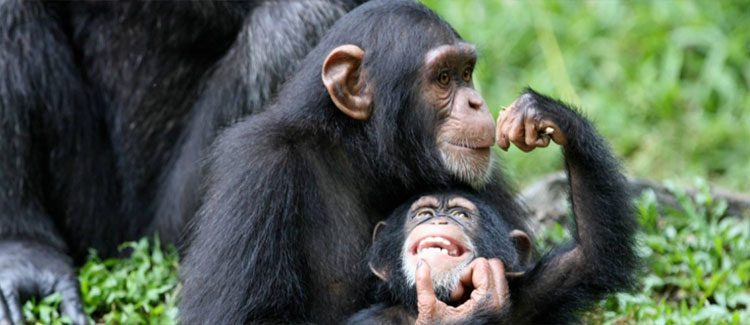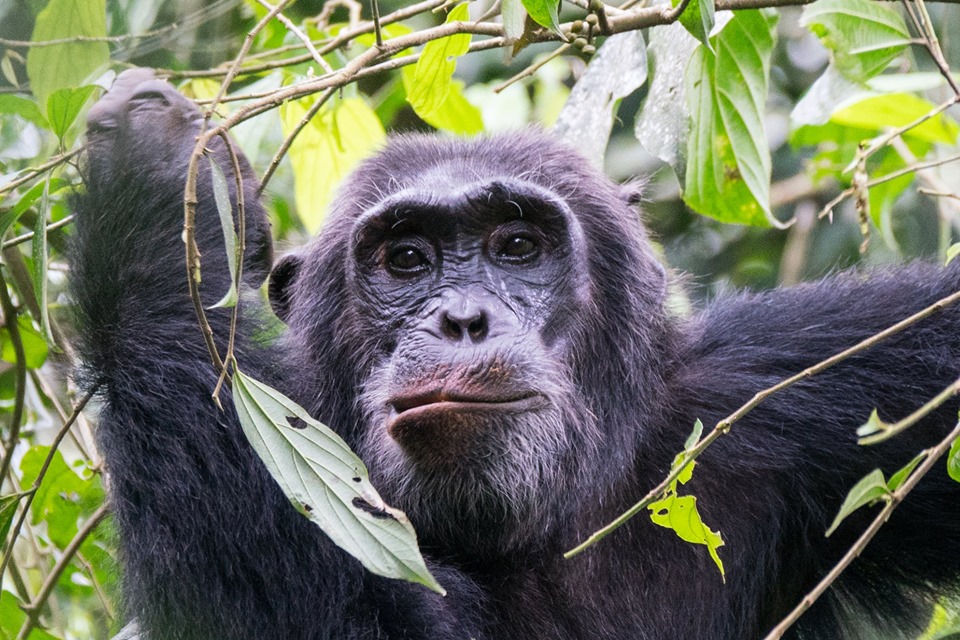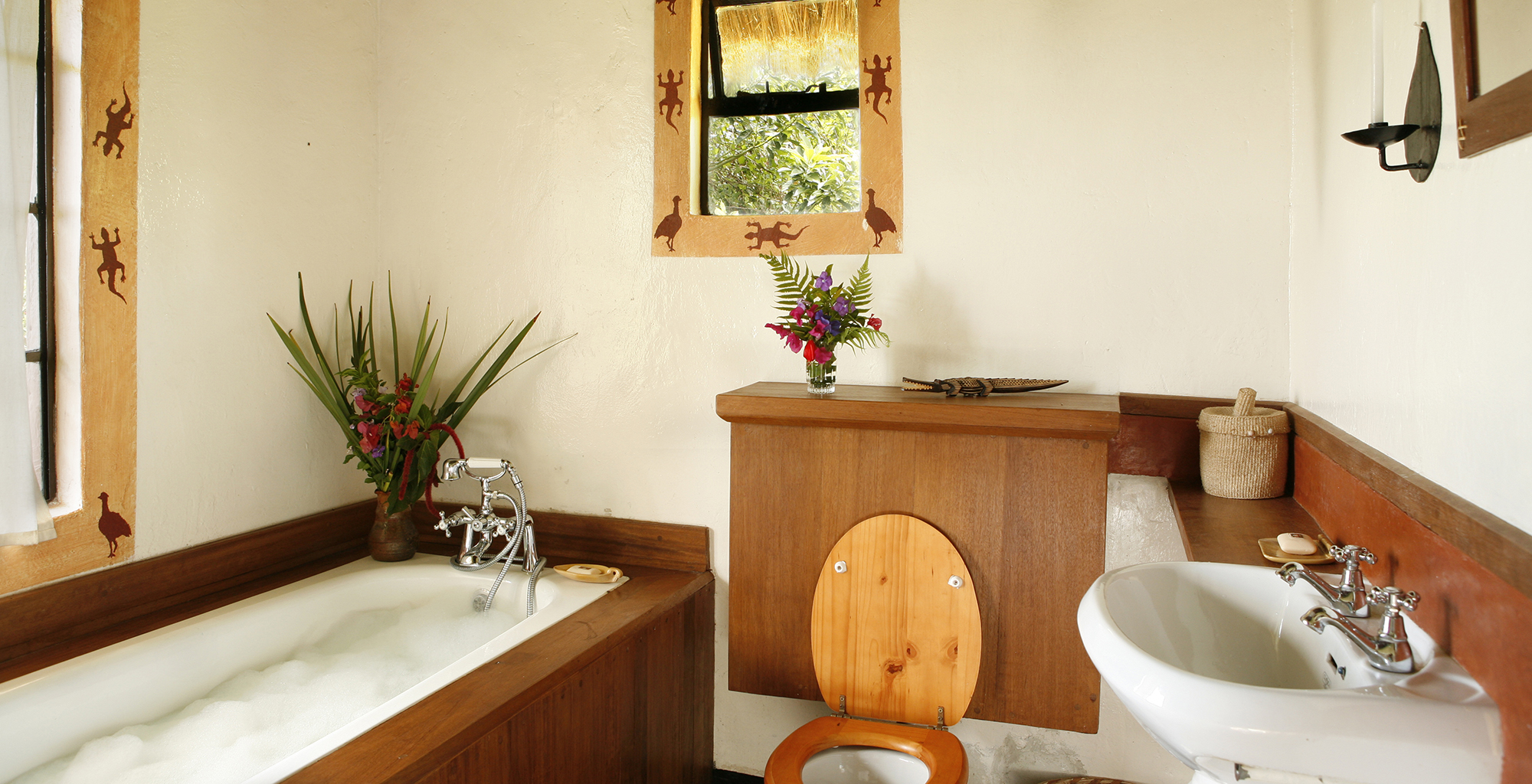
Cost of a chimpanzee trekking permit on a Uganda safari
Unlocking the Mysteries of Uganda’s Chimpanzee Safaris | Cost of a chimpanzee trekking permit on a Uganda safari. In the heart of East Africa lies a mesmerizing destination – Uganda, a haven for nature enthusiasts seeking unparalleled encounters with our closest relatives, chimpanzees. Embarking on a chimpanzee safari in Uganda is a journey into the heart of lush forests, an odyssey where every moment is an exploration of the wild and a communion with these incredible primates.

The Pinnacle of Primate Encounters: Chimpanzee Trekking and Habituation Safari
Understanding the Cost:
Embarking on a chimpanzee safari starts with the acquisition of a chimpanzee permit from the Uganda Wildlife Authority. The permit cost varies based on the destination and the chosen activity, whether it’s chimpanzee trekking or the immersive chimpanzee habituation experience. The permit covers park fees, ranger guide fees, security, conservation support, and, most importantly, the magical hour spent with the chimpanzees.
The current cost of chimpanzee trekking in Kibale National Park, home to over 2500 chimpanzees, is $250 for foreign non-residents, and 180,000shs for East Africans. The chimpanzee habituation experience permits, allowing four hours with these incredible primates, are priced at $300 for foreign non-residents, $300 for foreign residents, and 300,000shs for East Africans.
Exploring Kyambura Gorge in Queen Elizabeth National Park provides another enchanting opportunity for chimpanzee trekking. Permits for this experience are priced at $50 for foreign non-residents, $40 for foreign residents, and 30,000shs for East Africans. These permits offer a captivating hour with the chimpanzees, a nature walk, and a chance to contribute to conservation efforts.
In Kaniyo Pabidi, nestled in Murchison Falls National Park, a chimpanzee community thrives amid towering mahogany trees. The cost of chimpanzee trekking permits in this haven is part of the overall safari package, which includes ranger guide fees, security, conservation support, and one hour with the chimpanzees.
Beyond Permits:
However, the safari experience involves more than just permit costs. Accommodations play a pivotal role, ranging from upmarket to mid-range and budget options. The choice of accommodation can significantly influence the overall safari package. Each destination boasts unique lodges, from the luxury of Ndali Lodge in Kibale to the captivating Mweya Safari Lodge overlooking Kyambura Gorge.
Transportation to these destinations is a crucial aspect to consider. Whether navigating through the marram roads to Kyambura Gorge or traversing the jungles of Kibale National Park, the costs include vehicle hire, fuel, driver guide fees, and other associated expenses. For those opting for domestic flights, additional costs may include seat purchases and other related fees.

Additional Activities:
Uganda’s richness extends beyond chimpanzee encounters. Combining the chimpanzee safari with other activities enhances the overall experience. Game drives in Queen Elizabeth National Park, Murchison Falls National Park, Lake Mburo National Park, and Kidepo Valley National Park provide opportunities to witness diverse wildlife. Relaxing launch trips on the Kazinga Channel and the River Nile add a touch of serenity to the adventure.
Visiting iconic sites like the source of the River Nile, partaking in whitewater rafting, exploring religious grounds like the Uganda Martyrs’ shrine in Namugongo, and more, enrich the Uganda safari experience. Each activity may come with its costs, such as park entrance fees and associated expenses.
Essential Gear:
Preparing for a chimpanzee safari requires the right gear. From safari hats, long-sleeved shirts, and trousers to cameras, rainproof gear, garden gloves, insect repellent, and energy bites, each item contributes to a comfortable and enjoyable safari experience.
Factors Influencing Cost:
Several factors influence the overall cost of chimpanzee safaris. The number of days and people on the safari, along with the time of booking, play crucial roles. Longer safaris and more individuals often result in reduced per-person costs, providing a cost-sharing advantage. Additionally, the choice between peak and low seasons affects both demand and prices.
Best Time for Chimpanzee Safaris:
While chimpanzee safaris are available throughout the year, the dry season from June to September and December to January is considered optimal. The lower precipitation and increased sunlight during this period enhance visibility and accessibility to the chimpanzees. The wet season, on the other hand, may present challenges as the chimpanzees seek refuge in trees.
Guidelines for Responsible Safaris:
Chimpanzee safaris come with responsibilities to ensure the well-being of both humans and primates. Prohibitions on flash photography, feeding the chimpanzees, and maintaining a respectful distance are crucial for their conservation. Responsible practices, such as not smoking or eating in front of the chimpanzees and refraining from unnecessary disruptions, contribute to sustainable tourism.
In conclusion, a chimpanzee safari in Uganda is a multifaceted adventure. Beyond the enchanting encounters with our closest relatives, it encompasses a myriad of elements, each contributing to the overall safari experience. The costs involved, from permits and accommodations to transportation and additional activities, offer a glimpse into the intricate tapestry of planning a chimpanzee safari in the heart of Uganda.
Embark on a journey where every step is a connection with nature, every moment is a discovery, and every encounter is a celebration of life in its purest form. Uganda’s chimpanzee safaris beckon, promising an odyssey that transcends the ordinary and delves into the extraordinary.






